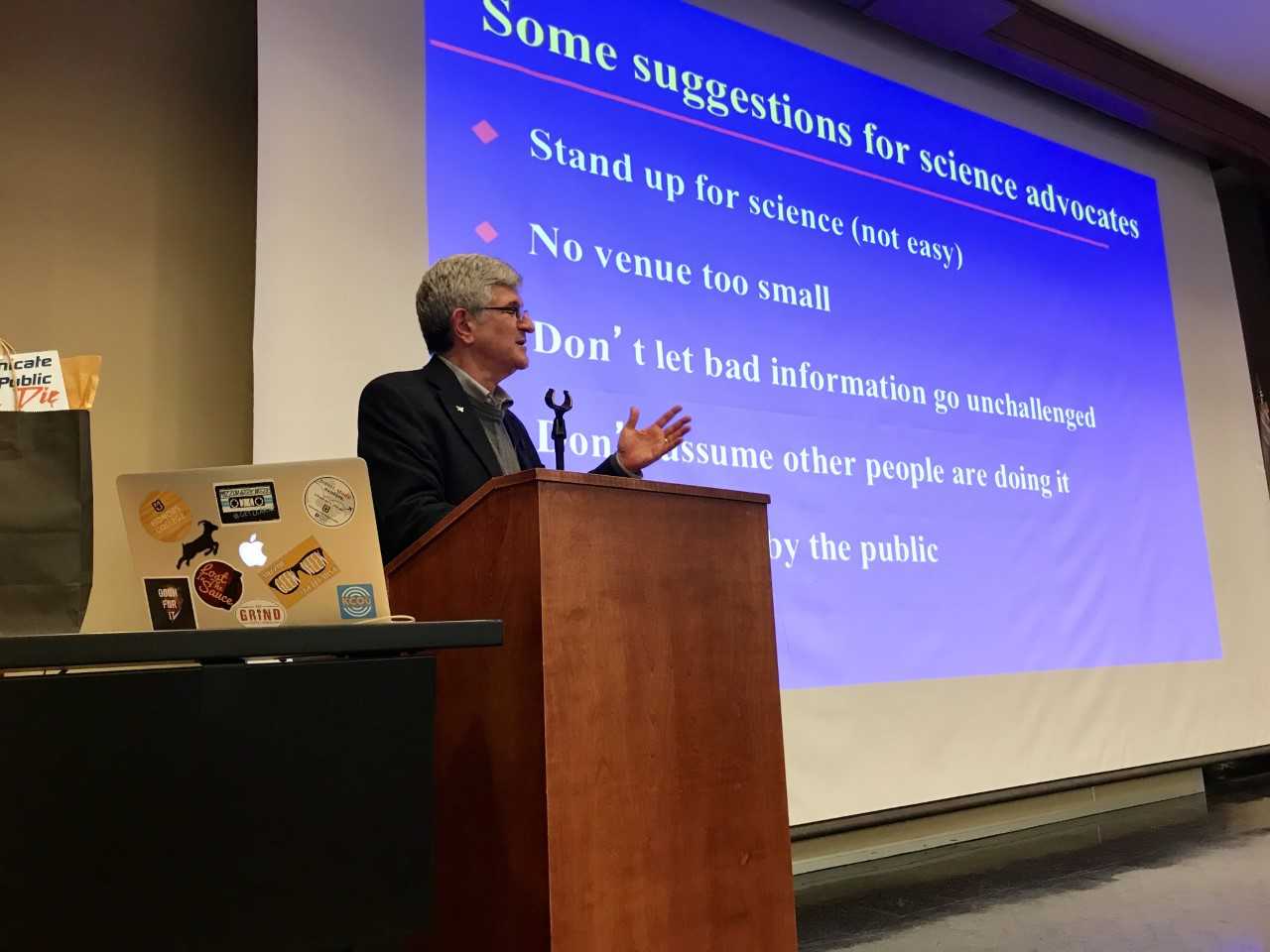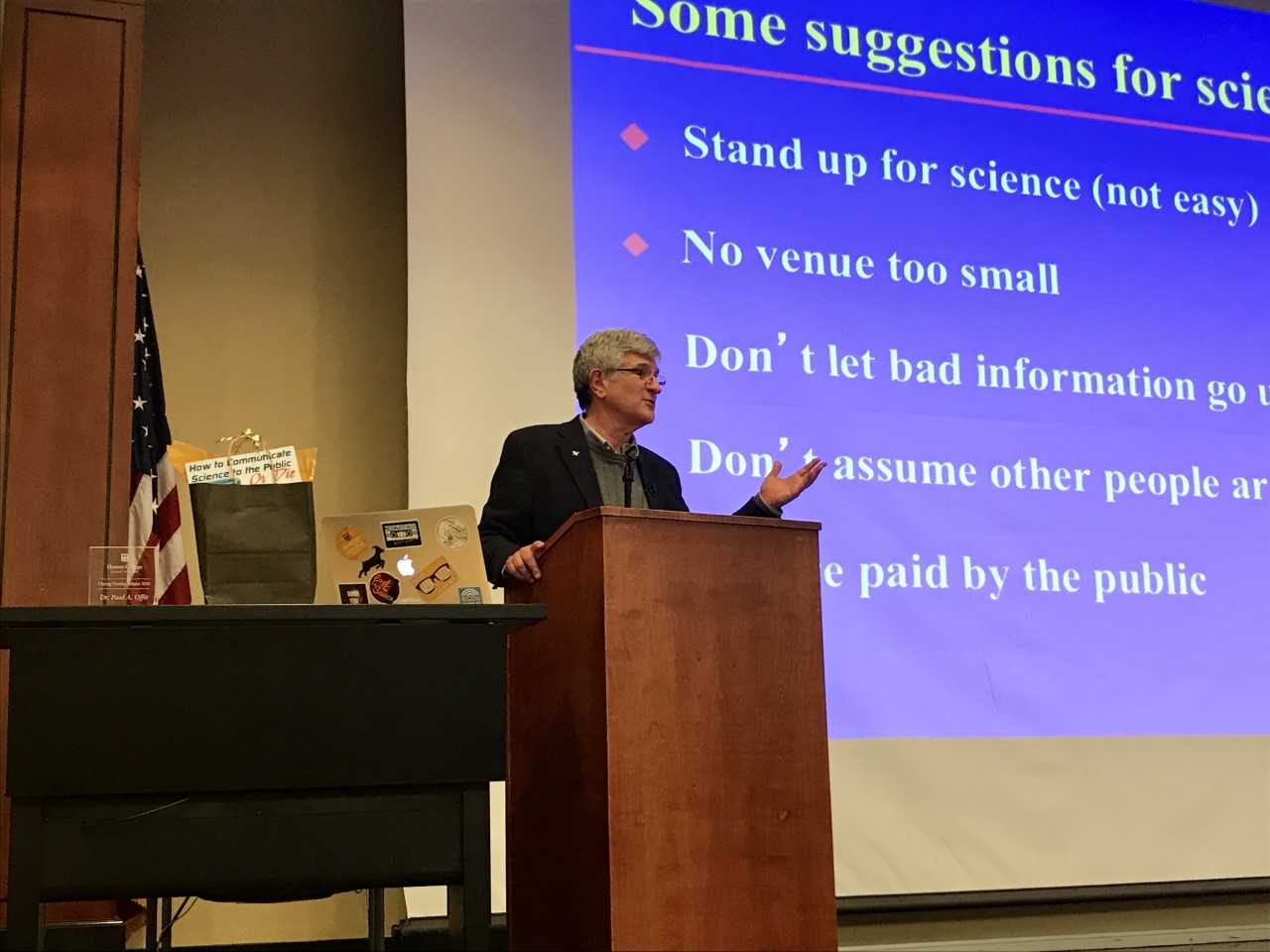Published on Dec. 14, 2018

America is experiencing an epidemic of “false balance, lack of understanding the scientific method, and the lure of controversy when no scientific controversy” actually exists, noted Dr. Paul Offit in his keynote address as the 2018 Cherng Prize in Honors recipient. He went on to share his experiences and views over the past fifteen years as one of the nation’s leading advocates for vaccines.
Offit, the Director of the Education Center at the Children’s Hospital of Philadelphia, as well as a member of the CDC Advisory Committee on Immunization Practices, spent three days on campus giving lectures, brown bag seminars, and classroom visits, for students and faculty across the campus. As the co-inventor of the rotavirus vaccine, which is universally recommended for infants, and the author of more than 160 medical papers, he is uniquely qualified to help put to rest the notion that vaccines are not beneficial or that they have a causational relationship to autism.
As a well-known member of the medical community, Offit is no stranger to media attention. His public lecture, which was titled “How to Communicate Science to the Public … or Die Trying”, focused on how to explain science to the public in understandable, accurate, and interesting ways. His audience was comprised mostly of pre-med, medical, health professions, and journalism students, as well as faculty and community members from across campus.
The need for and relevance of Dr. Offit’s lecture was apparent, noted the director of the Honors College, Dr. J.D. Bowers, in his introduction, owing to recent and ongoing events that reflect the damage done when children are not vaccinated. Bowers noted that nearly 200 infants died from the flu in 2017, and 80 percent of them had not received the flu shot. This is just one example of recent disease outbreaks shared by Bowers, and why Dr. Offit’s visit was so timely.
Through sharing his personal experience in interviews and appearances, Offit presented common challenges faced when communicating with the public about science and medicine, and he gave advice on how to overcome these challenges. One of the most notable, he acknowledged, was the challenge in making important science news appealing to the public.
“Trying to condense a scientific explanation into a statement that is short and compelling is difficult,” Offit said.
In order to combat this, Offit told the audience to try to relate the news to personal stories. Creating a narrative can help the public understand these topics on a deeper level and help spread helpful information.
Offit added that another challenge in communicating scientific topics is the evolving nature of science itself. New discoveries and recommendations are flowing constantly, which can create confusion in the public.
“The fluidity of science can be disconcerting,” Offit said. “The truth wins out, but there may be bumps along the road.”

Kaylee Brewer, a junior public health major at MU attended Offit’s lecture because the topic intrigued her, and she felt it was relevant to her coursework. Brewer said she was very impressed by his willingness to share his mistakes and the lessons he has learned.
“Dr. Offit’s lecture was very informative and entertaining,” Brewer said. “He used his own mistakes as examples, which gave his lessons context and made a lasting impression on the audience.”
Despite the challenges, Offit was adamant that it is possible to explain complicated issues to the public. He told the audience to start now, and that by spreading helpful information to even one person, you can make a difference.
“Start small and defend your expertise whenever and wherever you can,” Offit said. “You can make a difference.”
By the time he left campus, Dr. Offit had worked with over 500 students and faculty, providing insights, recommendations, and adding to their knowledge. Adding to this direct impact, the Honors College distributed, for free, more than 400 copies of his latest book, Bad Advice, which challenges the public to see through the noise of anti-scientific, specifically anti-vaccination, arguments and champion the pursuit of medical advances.